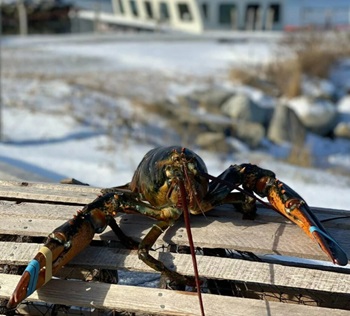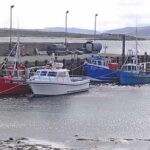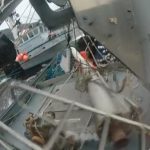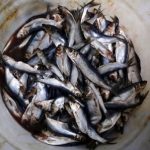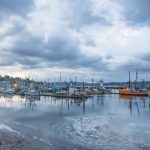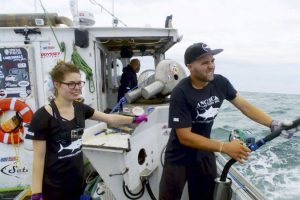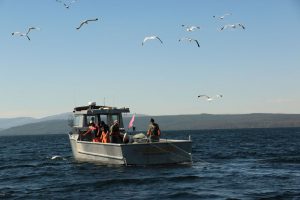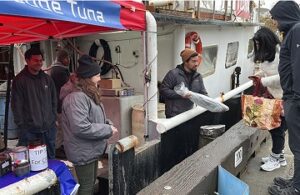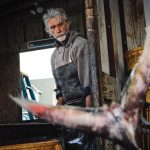Daily Archives: February 3, 2024
Shrimpers face pricing issues
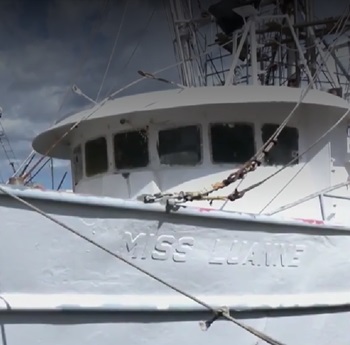 “I’ve been in the business with my parents when they were alive, straight out of high school, which is about thirty something years ago. I have never seen the price of shrimp this low,” said Jose Cuevas Jr., owner of Los Tortugos Seafood Market. Cuevas has a fleet consisting of eleven shrimp boat. He says all of his boats are now sitting idle because it’s not cost effective to go fish. He said it costs 30 to 40 thousand dollars just to fuel up one boat to go out. Other shrimpers are having the same issues with fuel costs keeping them docked. “Usually for us, around this time of year, fuel prices are a dollar fifty. Right now, they’re at close to three dollars, so double,” said Alberto Ochoa, owner of Ochoa Trawlers. Video, more, >>click to read<< 15:02
“I’ve been in the business with my parents when they were alive, straight out of high school, which is about thirty something years ago. I have never seen the price of shrimp this low,” said Jose Cuevas Jr., owner of Los Tortugos Seafood Market. Cuevas has a fleet consisting of eleven shrimp boat. He says all of his boats are now sitting idle because it’s not cost effective to go fish. He said it costs 30 to 40 thousand dollars just to fuel up one boat to go out. Other shrimpers are having the same issues with fuel costs keeping them docked. “Usually for us, around this time of year, fuel prices are a dollar fifty. Right now, they’re at close to three dollars, so double,” said Alberto Ochoa, owner of Ochoa Trawlers. Video, more, >>click to read<< 15:02
Coast Guard finds no pollution after fishing boat runs aground on Cape Cod
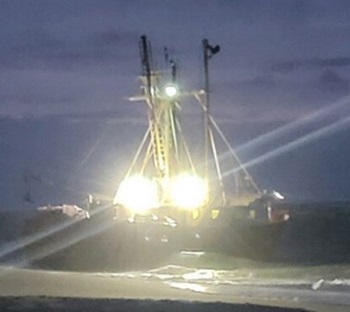 The United States Coast Guard determined there is no pollution after a fishing boat ran aground at Ballston Beach in Cape Cod on Friday. Authorities say they were notified at around 2:30 a.m. that the Miss Megan vessel hat ran aground. No injuries were reported. The boat was refloated at around 5:30 p.m. and towed to New Bedford after it was determined there was no pollution. Click the photos. Photos, >>click to read<< 13:05
The United States Coast Guard determined there is no pollution after a fishing boat ran aground at Ballston Beach in Cape Cod on Friday. Authorities say they were notified at around 2:30 a.m. that the Miss Megan vessel hat ran aground. No injuries were reported. The boat was refloated at around 5:30 p.m. and towed to New Bedford after it was determined there was no pollution. Click the photos. Photos, >>click to read<< 13:05
PR, first aid training tailored for fishermen
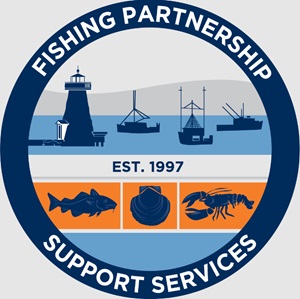 It pays to play it safe. Plus, when it comes to fishing, safety may be job one before the hooks are set and the nets are cast. That sort of self-health maintenance is part of the reason tailored for fishermen is putting out the call to fishermen to sign up for a free, all-day CPR and first aid training class. The class will take place Feb. 9 from 8:30 a.m. to 3 p.m. at the DES Club, 133 Prospect St., Gloucester. The hands-on course will teach lifesaving skills to assess and treat injured or ill crew onboard fishing vessels before emergency personnel arrive, according to the partnership. John Roberts, director of the safety training program for the nonprofit Fishing Partnership Support Services, said he expects at least 30 fishermen to attend the training in Gloucester. more, >>click to read<< 11:06
It pays to play it safe. Plus, when it comes to fishing, safety may be job one before the hooks are set and the nets are cast. That sort of self-health maintenance is part of the reason tailored for fishermen is putting out the call to fishermen to sign up for a free, all-day CPR and first aid training class. The class will take place Feb. 9 from 8:30 a.m. to 3 p.m. at the DES Club, 133 Prospect St., Gloucester. The hands-on course will teach lifesaving skills to assess and treat injured or ill crew onboard fishing vessels before emergency personnel arrive, according to the partnership. John Roberts, director of the safety training program for the nonprofit Fishing Partnership Support Services, said he expects at least 30 fishermen to attend the training in Gloucester. more, >>click to read<< 11:06
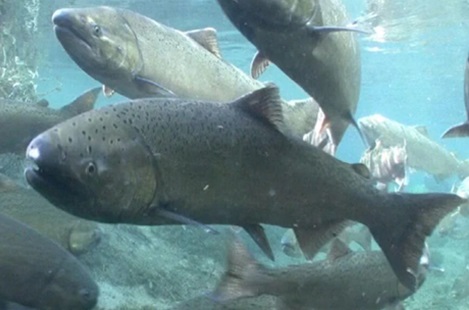
$20M+ in federal funds to California fisheries for disaster relief, $7M+ Oregon
More than $7,000,000 is going to Oregon fisheries as part of $42,000,000 in federal fishery disaster funding. Today, the U.S. Department of Commerce announced allocation of those funds for recovery from fishery disasters in Oregon, Alaska, California, Louisiana, Mississippi, and the Muckleshoot Indian Tribe and Yurok Tribe fisheries from 2017 to 2022. The federal funding will help ocean commercial fishermen in Oregon recover from significant economic losses in 2018, 2019, and 2020 from declining salmon populations. For California, U.S. Department of Commerce Secretary Gina Raimondo announced allocation of $20.6-million to address a fishery resource disaster that occurred in the 2023 Sacramento River Fall Chinook and Klamath River Fall Chinook Ocean and inland salmon fisheries. more, >>click to read<< 10:00
Why Fairer West Coast Fishing Needs More “Boots on Deck,” According to New Report
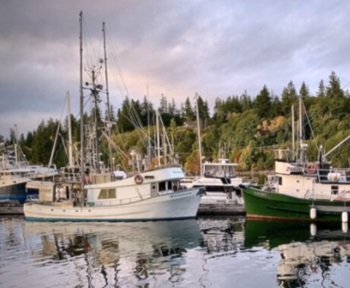 The West Coast fishing industry finds itself in increasingly troubled waters, according to a recent report from the Standing Committee on Fisheries and Oceans (FOPO). The parliamentary committee says unfair regulations and a lack of federal intervention have led to an uneven playing field for BC fishers. Unlike the Maritime provinces, where regulations limit corporate control and prioritize independent harvesters, there are no restrictions on ownership of commercial licenses and quotas on BC’s coast. As a result, owner-operators are often shut out of the process, jeopardizing their ability to make a sustainable living. “Fisheries are the fabric of our coastal communities, and they have been particularly in Indigenous communities for 10 to 15,000 years. Fish in the water are the birthright of all Canadians,” Sonia Strobel, CEO of Skipper Otto Community Supported Fishery, told us in an interview. photos, more, >>click to read<< 07:45
The West Coast fishing industry finds itself in increasingly troubled waters, according to a recent report from the Standing Committee on Fisheries and Oceans (FOPO). The parliamentary committee says unfair regulations and a lack of federal intervention have led to an uneven playing field for BC fishers. Unlike the Maritime provinces, where regulations limit corporate control and prioritize independent harvesters, there are no restrictions on ownership of commercial licenses and quotas on BC’s coast. As a result, owner-operators are often shut out of the process, jeopardizing their ability to make a sustainable living. “Fisheries are the fabric of our coastal communities, and they have been particularly in Indigenous communities for 10 to 15,000 years. Fish in the water are the birthright of all Canadians,” Sonia Strobel, CEO of Skipper Otto Community Supported Fishery, told us in an interview. photos, more, >>click to read<< 07:45






